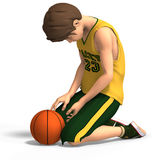Don't touch that! It's Mine! Sibling issues
/Don’t touch that! That’s mine!
Dealing with siblings messing with each other’s things
By Patience Domowski, LCSW
Do your kiddos fight over who is allowed to touch what item and what toy belongs to which kid? Do your kids get super upset and overprotective of their stuff to the point of fighting frequently over it? Do you have a younger child who loves to torment their older sibling just for the fun of it? Well, here’s some help!
Let’s look at the Why this happens, What to do about it, and How to prevent it strategies.
First, Why does this happen? Why are siblings always getting into each other’s rooms, toys, clothes, etc? Often it's for a reaction or attention. So when Sibling A touches Sibling B’s toy and Sibling B gets mad, Sibling A loves to see that reaction! Sometimes it's because they want to play with the toy or are jealous they don’t have the same item. Some kids want to play with it just because it's not theirs even if they have the same thing! Often younger kids want to be like their older siblings and want to do what they do, so they get into things because of that. Some kids are just curious and get into things out of curiosity and exploration. If you can figure out WHY it will help. Often it can be a combination of these reasons.
To get a reaction/make sibling mad/get adult’s attention
For attention/wants to play with the sibling
Wants to play with the toy because don't have one, or because they just want to play with something different, jealous they don’t have the same thing
Want to be like an older sibling
Out of curiosity/exploring (usually very young kids)
Other reasons...
Next, What can we do about it? We want to look at how to shape the behavior of both the sibling that’s getting into things and the sibling that owns the things because both reactions and behaviors are important to address.
Let’s call the sibling that’s getting into the things “JJ”, and assume he’s younger, and the sibling that owns the things “Johnny”, and he’s a little older than JJ.
Here’s the scenario: JJ sneaks into Johnny’s room and starts messing with his lego creations. Johnny comes home and goes in his room and discovers this. He screams and yells and maybe even hits JJ. Mom comes in and finds everyone is crying. Now what? Let’s assume the reason JJ did this is just out of curiosity and wanting to play with Johnny’s toys, not that he was trying to infuriate him.
My suggestion: Talk to both about their behaviors.
-First try to calm everyone down. If they are out of control, send to separate rooms for some alone time until everyone is calm.
-Then talk to JJ about how he needs to ask before going into brother’s room, and also touching his things. He needs to respect Johnny’s space and toys. He should ask Johnny first if he can touch and play with his legos.
-Talk to Johnny about his reaction. Explain that JJ was just curious and wanting to check the toys out because he’s too little to build things that cool, so he likes to look at them. Suggest that next time Johnny ask JJ nicely to not touch his toys, and suggest another activity or toy that JJ can play with instead, or show him nicely how to build things with some other legos, possibly. If JJ doesn't listen, then ask mom or dad to step in.
-If possible have the siblings act this out again. Have JJ pretend to go into Johnny’s room, Johnny comes in, and practices saying nicely “Please don't touch my legos. Let’s play with your blocks downstairs”. Have JJ ask “Can I please see your airplane you built? It’s so cool!” etc… Praise the children for acting this out appropriately.
(Acting out/role-playing appropriate behavior is a more effective way of teaching good behavior, than just talking/discussing what to do next time, as the act of doing the right behavior builds ‘muscle memory’ instead of just a lecture).
Another situation. Let’s say little brother Bobby loves to make older sister Haley mad. Here’s the scenario: Haley is playing nicely with her dolls in the living room. Bobby runs in, snatches the doll and pulls its hair, throws it down, and runs out of the room. Haley starts screaming and crying. Bobby laughs. Haley chases him down, intent on bodily damage. Mom/Dad comes in and starts yelling at everyone to stop.
Suggestion: Ask everyone to calm down. Have them sit down to discuss when calm. Address Bobby first. Ask what did he do wrong and what would’ve been a better idea. Bobby: “I grabbed her doll. I probably shouldn't touch it”. If he’s able to discuss why see if he can explain (some young children are unable to answer Why questions just yet). Bobby: “ I wanted to make her upset.” Or “Dolls are stupid.” Mom can say something like “Okay, that’s not very nice, let’s think of a better way to interact with your sister”. Bobby: “I could ask her to play with me.” “I could ignore her”. Parents may need to prompt some appropriate responses, such as suggest if he wants a reaction maybe tell her a funny joke, or story, or ask her to play something together. Then talk to Haley. What could she have done differently or better? Haley: “I should’ve told mom/dad instead of chasing him and screaming”. Parents; “Right, when you scream and chase him- that’s what he wants! He’s trying to make you upset. While it's not right what he’s doing, a good way to make him stop is to just ignore him, ask him nicely to please stop, and then tell mom/dad if he isn't listening/continuing. If you keep screaming when he does these things, it makes him happy, which makes him keep doing that. I know it's really hard, because its infuriating when someone hurts your toys or grabs something from you, but if you are calm, he won’t get the reaction he wants.” Haley: “He should be grounded for a year!” …
Then have kids re-do the scenario in a better way. Haley pretends to play with doll. Bobby comes in, thinks ‘I want attention!’. He can say ‘Hey Haley, did you hear this funny joke?’ Haley can say ‘What joke?’. Then have Bobby touch her doll. Haley can say ‘Please don’t touch my doll, Bobby. It makes me upset when you touch my things.’ Praise the kids for making better choices.
Key strategies:
-Teach the one that is messing with the things to ask and respect property and space
-Teach the over-reactor child to ask the sibling to please not touch, ask first, and react calmly. Get parents to help if sibling isn't listening
-Role-play/Act out how to make better choices next time
-If behaviors continue- give out consequences to the child who touches the stuff, and if needed, the child who overreacted (if severe reaction like hitting/etc)
How to prevent this: Talk to all the children about the importance of respecting each other’s space and stuff. Gather them all together and ask them why they don’t want people touching their things, and how they feel when someone messes up their toys. Have them share with each other why it bothers them and what they would prefer. If the children are struggling to share, discuss how this makes others feel, and emphasize why it's important to share sometimes, and sometimes it's okay to keep things to yourself. Ask them how they feel when they are getting into someone’s things, and why they do it. Have the children calmly tell each other why it’s not a good idea and why it upsets them. Have the children figure out what toys/spaces are shareable- maybe the playroom and the blocks are for everyone, but the bedrooms and stuffed animals are individually owned, for example.
Remember- its okay for kids to have some items or space that is just theirs. It is good for them to have some ownership over things and it helps them feel secure to know “this is mine”. However it's just as important to learn to share spaces and toys and knowing which is which and how to respect boundaries is important for children to learn as they are growing up.
Key points: If someone asks you to stop or not touch, you need to listen. If it doesn't belong to you you need to ask for permission before touching or using it.















